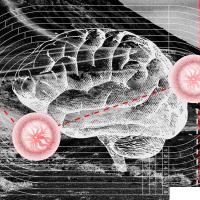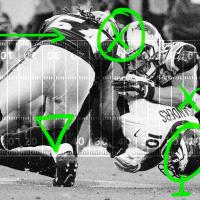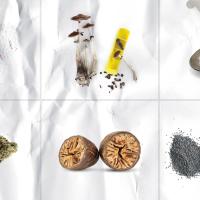When first manufactured as an anesthetic for humans and animals in 1962, doctors certainly had no intention of prescribing ketamine for depression. Nor did they intend for its psychoactive effects to boost its popularity among festival-goers and galaxy explorers.
The surprising and powerful effect that ketamine has proven to have on the brain’s neurons though, has led doctors to explore its medical potential and begin to strip away the stigma that decades of recreational abuse have given to a potentially life-saving treatment.
From Party Drug to Life-Saving Treatment
Ketamine has gained notoriety over the past few decades as a mind-altering drug capable of both anesthetizing horses and sending party-goers into hallucinogenic bliss. The drug has a long and storied history in the club scene and due to its abuse in this scene, it became discredited and stigmatized.
Once drugs are scandalized to this extent it’s difficult to highlight the positive neurological and psychoactive effects of which they’re capable. But doctors such as Dr. Dennis Charney, of the Icahn School of Medicine at Mount Sinai, are finding that ketamine has incredible potential when used as a means of treating various forms of mental illness.
Dr. Charney recognized an alternate potential for ketamine and created an entirely new field of science called suicide biology. He jumped on the opportunity to harness the drug’s effects to address the country’s rapidly growing issues of depression and suicide.
Because of the research of Dr. Charney and others, ketamine’s reputation is now moving away from that of a party drug and into one of the newest and most effective forms of medication to treat severe depression.
Ketamine for Depression: How it Works
What differentiates ketamine from other antidepressants is how it works to affect the brain. Antidepressants typically focus on increasing chemicals in the brain such as serotonin and dopamine.
Using ketamine for depression, however, can actually assist in repairing neuron synapses that typically don’t function properly in the brains of depressed patients. Ketamine provokes a response in the brain, and it’s the adaptation to that provocation- the regrowth of synaptic connections- that is responsible for the rapid improvement in the mood it creates.
The Need for an Alternative Treatment
Depression is an ever-growing epidemic in America and it’s one that requires outside-of-the box thinking, such as the introduction of ketamine therapy. An NBC article reports that since 2013, diagnoses of major depression have risen by 33%, including a 47% increase in those ages 18 to 34.
The exponential growth of this affliction, despite the large number of chemical antidepressants currently available, indicates that there is an enormous need and opportunity for alternative treatments like using ketamine for depression.
Approximately 5 million people in the U.S. with depression don’t respond to commonly prescribed treatments.
One of the major issues with today’s well known and more socially-accepted forms of antidepressants is their ineffectiveness on a growing number of individuals. Around five million people in the U.S. with depression don’t respond to commonly prescribed or recommended treatments.
This condition is known as Treatment-Resistant Depression. The hopeless feeling that these individuals experience is compounded by the bombardment of prescribed but ineffective treatments. The crushing weight of doom they carry is further impacted by the feeling that nothing is going to be able to help them unload this burden.
It’s no wonder then that, as Bloomberg Businessweek reports, the rate of suicides in our country rose by 30% between 1999 to 2016 alone. Additionally, suicide is now the second-leading cause of death for Americans ages 10 to 34.
Ketamine Infusion and Nasal Sprays
Ketamine infusion therapy is one of the newest and most effective ways that doctors are able to provide relief for individuals with severe depression. Infusion centers are beginning to pop up all over the country, which is making the treatment more accepted and accessible.
Patients interested in trying ketamine for depression can visit these centers once every one to six months depending on the severity of their condition. Within several hours of treatment many patients begin to feel better, and within 24 hours some feel nearly or completely better.
People with Treatment-Resistant Depression who start taking prescription antidepressants typically have between a 10 and 20 percent chance of a positive response. Those being treated with ketamine infusions have a positive response rate between 50 and 80 percent.
Ketamine can actually assist in repairing neuron synapses that don’t function properly in depressed patients.
These staggering and positive results have been known to the scientific and medical communities for many years, but ketamine’s “party drug” stigma hindered further research and adoption. The good news is that now, attitudes toward the drug are finally starting to change and with the changes, access to ketamine as a medication is becoming more readily available.
As both society and the medical community begin to gain a different perspective on ketamine, new research findings continue to expand the drug’s possibilities. The FDA approved a nasal spray form of the drug last year which can be used in addition to ketamine infusion.
The spray allows users to get relief in minutes or hours, rather than weeks or months like typical antidepressants. Providing those with severe depression fast-acting, at-home relief is incredibly important as the country fights to reverse high suicide rates.
New Promise for Ketamine and Depression
The recent growth of research has also expanded the scope of ketamine’s potential for those dealing with PTSD, severe anxiety, chronic pain, OCD, and bipolar disorder, offering new hope for individuals who have felt hopeless for too long.
Like with any drug, ketamine’s effects can be dangerous and abused if it’s used improperly and for non-medical purposes. It’s equally important though to weigh the exponential impact that ketamine could have for those who suffer from mental illness, and it would be negligent to not continue the expansion of research of this drug.
Time is rarely on the side of those suffering with a severe mental illness, but the fast-acting potential of ketamine might just be able to reverse the clock on depression rates and erase the drug’s negative stigma.
For more from our Dope Science series, subscribe to Freethink.


